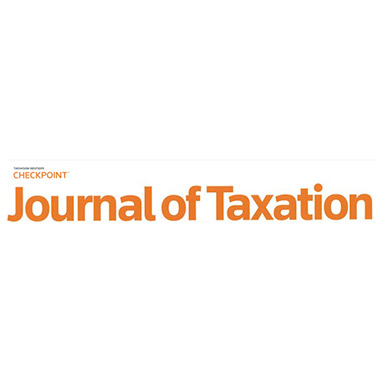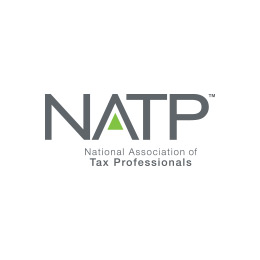If you have foreign accounts or assets overseas, you will likely be required to file a Report of Foreign Bank and Financial Accounts, commonly known as “FBAR.” If you failed to file an FBAR during any year you were required to do so, you could be facing serious consequences.
Fortunately, the IRS has several amnesty programs to help individuals come into compliance with their tax responsibilities. However, the amnesty program available in your case will depend on whether your lack of filing was willfully done or was an honest mistake. While you will still likely be penalized in the case of an unintentional error, but not nearly as severely if an FBAR filing a willfully withheld.
For your free case evaluation, call our attorneys for FBAR amnesty programs at McCormick Tax Law at (215) 630-0861.
Individuals Who Must File a Foreign Bank and Financial Account Report (FBAR)
According to the Financial Crimes Enforcement Network (FinCEN), American citizens and residents with financial interests or signature authority over foreign financial accounts must file a Report of Foreign Bank and Financial Accounts (FBAR). Limited liability corporations and trusts formed in the United States might also be required to file an FBAT in certain circumstances. An FBAR is mandatory if the combined value of the foreign financial account exceeds $10,000 in a calendar year. Foreign accounts can include checking accounts, savings accounts, securities accounts, mutual funds, cash annuities, and other foreign accounts from a financial institution.
The IRS advises taxpayers with even minimal foreign assets to carefully review their FBAR filing obligations. It is worth noting that filing a tax return is distinct from submitting an FBAR filing. This means that your FBAR Form 114 needs to be filed separately and directly with FinCEN. Since FBAR regulations can change annually, people with foreign accounts should stay alert and keep up-to-date with FBAR rules to ensure they remain compliant.
Failing to file an FBAR or making mistakes on your filing can cost you severely, even if the mistakes were innocent. Fortunately, several programs are available to help you come into compliance with FBAR regulations depending on your circumstances.
Types of FBAR Amnesty Programs Available
If you have not filed an FBAR or believe you made a mistake when you did, you might be able to make use of several FBAR amnesty programs made available by the IRS. Our attorneys for FBAR amnesty programs can review your case and help you determine which program is best suited to your situation. However, which programs are open to you will depend on the reasons for your non-compliance. In most cases, this will turn on whether the error was intentional or non-willful.
Voluntary Disclosure Program
The Voluntary Disclosure Program (VDP) is designed to assist willful taxpayers in complying with tax laws. By submitting a comprehensive and timely VDP, the IRS can evaluate the taxpayer’s situation and decide on appropriate penalties. In certain cases, this can help filers avoid criminal charges being filed against them. For taxpayers who are unable to certify non-willfulness under penalty of perjury, this disclosure option is usually the best choice.
Streamlined Domestic Offshore Program
The IRS has created the Streamlined Domestic Offshore Procedures (SDOP) specifically for taxpayers who are not considered foreign residents, were not willful in their non-compliance, and filed their original tax returns on time. This program is designed to assist individuals who have undisclosed foreign income, assets, accounts, and investments in becoming compliant with IRS regulations.
SDOP allows eligible taxpayers to choose to pay a 5% Title 26 Miscellaneous Offshore Penalty instead of facing other FBAR penalties. However, proving reasonable cause can be beneficial for both U.S. and foreign residents, as it can help them avoid the 5% penalty imposed by SDOP. This is particularly helpful for those who do not qualify for the delinquency programs. Reasonable causes are based on the IRS not finding any evidence that a person has willfully violated the FBAR filing requirements.
However, compliant individuals could possibly have all penalties on their tax and assets accounts waived in full by participating in the SDOP program.
Streamlined Foreign Offshore Program
The IRS offers a Streamlined Foreign Offshore Program (SFOP) for taxpayers. This allows certain individuals to file amended or original tax returns for up to three years and submit an FBAR FinCEN Form 114 for up to six years. To be eligible, though, taxpayers must certify under penalties of perjury that they were not willful in their actions and must not be under an IRS audit. Those who qualify for SFOP must also file the necessary tax documents and reporting forms and pay all mandatory taxes and penalties.
It is important to note that the Voluntary Disclosure Program and SFOP require separate submissions. If you happen to apply for Streamlined Procedures and get turned down, you will not be able to reapply for VDP. However, if you are considered a foreign citizen and did not act deliberately, you might be able to avoid many penalties related to your offshore activities through these procedures.
Delinquent FBAR Program
For U.S. residents and taxpayers who unintentionally failed to file their FBARs, the Delinquent FBAR Submission Procedures (DFSP) offers a less formalized way to rectify the issue. This program is available when the problem solely pertains to the non-filing of FBAR, and there is no need to amend tax returns. Additionally, only individuals who are not under civil or criminal investigation by the IRS can take advantage of this procedure. It can also be used even if the IRS has not yet contacted you about FBAR delinquency.
Delinquent International Information Return Program
Prior to November 2020, taxpayers who did not have any unreported income but failed to file international information reporting forms could avoid offshore penalties by submitting delinquent forms under the Delinquent International Information Return Program (DIIRSP). However, in November 2020, the IRS changed its rules and no longer assures that submitting delinquent forms will prevent penalties. Nonetheless, taxpayers might still be able to avoid penalties by demonstrating reasonable cause with the appropriate evidence.
Consequences for Failing to File an FBAR
The IRS warns that failing to file an FBAR on time and with accuracy can result in penalties, fines, and even criminal repercussions for taxpayers. If a violation is deemed non-willful, the penalty for each instance usually cannot go beyond $10,000. Keep in mind that this penalty can be assessed for each individual violation.
In the event that a violation is found to be intentional, the penalty will increase to either $100,000 or 50% of the account balance at the time of the violation, whichever amount is greater. Moreover, if the IRS concludes that an individual has committed a deliberate violation, they may face further criminal consequences.
Our Attorneys for FBAR Amnesty Programs Can Help
For help determining what amnesty programs might be right for you, contact our attorneys for FBAR amnesty programs at McCormick Tax Law today at (215) 630-0861.










